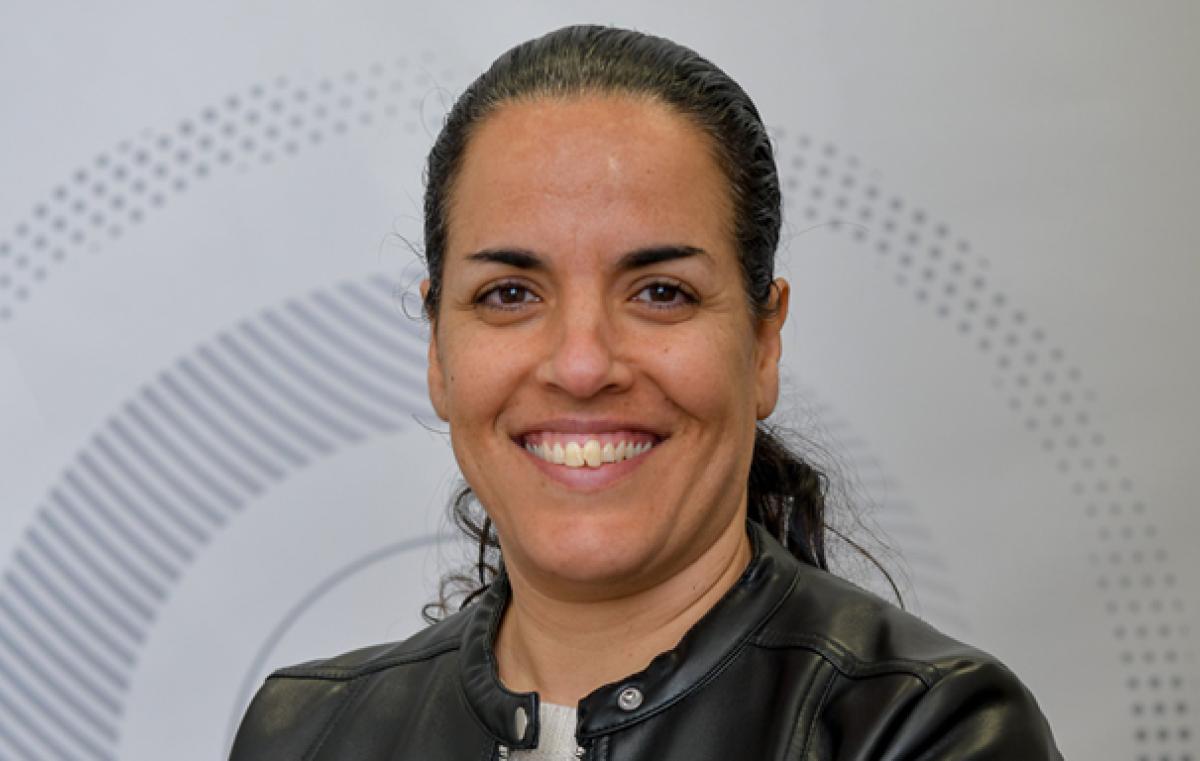Lecturing Chinese Students in Israel about the First Lady of Qatar
Mor Shapira, a lecturer in BIU’s Department of Arabic , follows Saudi Arabian and Gulf TV programs, weaves her in-depth knowledge of the “Theatre of the Absurd of the Middle East” into her lectures, speaks 10 languages, and teaches judges and ministers

Mor Shapira has been a lecturer in the Department of Arabic at Bar Ilan University, and a researcher at MEMRI (Middle East Media Research Institute) since 2019. She speaks 10 languages (Hebrew, English, Arabic, Persian, French, Italian, Spanish, Turkish, Portuguese and Swedish). Previously, she served in the 8200 IDF special intelligence unit, and later held a classified position at the Israeli Prime Minister's Office for a decade.
“I had an exciting opportunity to give lectures about the Middle East to 50 Chinese students in the framework of the GTIIT (Guangdong Technion Israel Institute of Technology) summer program,” says Mor. “I chose to focus on two topics: “The Lebanese Tragedy”, reviewing the economic, social and historical struggle in Lebanon; and "Sheikha Moza - the First Lady of Qatar", describing the complex character of the most powerful woman in Qatar, the mother of the current Qatari Emir, who pulls the strings and controls the richest Emirate in the Gulf.
“Lecturing before a Chinese audience was a fascinating cultural experience. They don’t ask questions or speak out uncalled, as this is viewed as challenging the lecturer in a disrespectful way. I had to modify my phrasing and content in light of Chinese sensitivities. Many are not familiar with the Middle East or any key stakeholders or issues except for the area of oil and gas.. It was necessary to explain in more detail about Bashar al-Assad, Hassan Nasrallah and various organizations. They didn’t even know about the Chinese initiative for peace between Saudi Arabia and Iran, and heard it from me for the first time.”
Mor earned BA and MA degrees from the University of Haifa in the Departments of Arabic Language, and Literature and History of the Middle East. In 2023 she began doctoral studies at Bar-Ilan’s Department of Arabic with Prof. Livnat Holtzman, in the field of Muslim theology.
At Bar-Ilan University, Mor teaches the literary and spoken Arabic language at all levels to students of the Department of Middle East Studies. “I weave the Arabic language and culture into department enrichment lectures which have a connection to the current affairs of the Middle East, such as the renewal of relations between Iran and Saudi Arabia, the World Cup in Qatar, the tragic circumstances in Lebanon, Sheikha Moza - the first lady of Qatar, and the status of women in Turkey.
“Among other topics, I discuss the linguistic diversity and the history of the Arabic language, as reflected in the analysis of IDF (Israeli Defense Forces) announcements in various areas in Gaza, Kenitra, southern Lebanon and Baghdad.
“I follow and research the work of Arabic television in Morocco, Libya, Iraq and Syria, Lebanon, Hezbollah, Palestinians, Tunisia, Saudi Arabia and the Gulf countries. The ability to listen in real time to the Arab and Muslim leaders, and the Muslim the Arab public, provides me with a rare glimpse into the intricacies of all Arab and Muslim countries in the Middle
East, and I like to weave this knowledge into my lectures at Bar-Ilan University on what I call the ’’Theatre of the Absurd of the Middle East’’.
“I believe the importance of studying Arabic (literary and spoken) is very clear, as it is the language of our neighbours - not just for understanding each other, but even for arguing or dreaming in the same language.
“As I see it, to properly study spoken or literary Arabic, you need to get to know the culture and mentality of our neighbours, by diving into unfamiliar worlds of content such as Islam and the Koran, Muslim holidays and festivals, business and social mentality, greetings and manners.
“In teaching Arabic and Middle Eastern Studies, I got to lecture for diverse populations, including police officers, pre-military preparatory schools, doctors, high school students, military personnel, and more. My students included Chief Justice Mr. Yosef Elron as well as Diaspora Minister Amichai Shikli.
“I do believe that the power to change starts with the little things. I hope and believe that through the Arabic language I can reveal this spark that exists in each and every one of us to dare, question, doubt, show curiosity and truly see the other.”